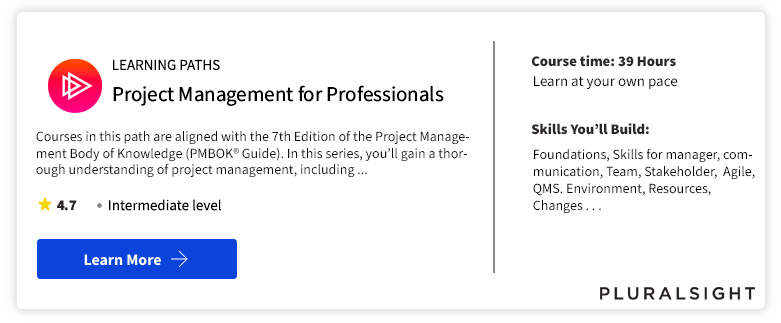The project management functions developed and divided into three groups. The three groups are;
- General Project Management Functions
- Basic Project Management Functions
- Integrative Project Management
Table of Content
11 Functions of Project Management
- Project Integration
- Strategic Planning
- Resource Allocation
- Scope Management
- Quality Management
- Time Management
- Cost Management
- Risk Management
- Human Resource Management
- Contract Management
- Communication Management
General Project Management Functions
Project Integration
If there is one most important aspect of project management, it would be integration. One must be able to integrate the many specialty fields provided by the human resource. Integrate the wide variety of equipment and materials, integrate the technologies to produce a product or an end result in conformance to the specifications/ requirements on time, and in the cost frame allowed.
With the dynamics of the project environment, it is almost impossible to allocate and schedule every part of the project. The management must be able to use the functional structure to adapt to the things that will always wrong.
Strategic Planning
There must be a vision. If it is appropriately conveyed to the project team, it can be an asset in determining controls and integration. On the technical level, strategic planning must involve combining the product concepts and work efforts.
A well-defined vision helps define how a project is to be managed. Also, in strategic planning, control requirements and related procedures must be in place before substantial work can be done on the project.
Resource Allocation
This is a process that determines the cost of a defined project and provides control over the project team. It is simply the project budget but is not a simple process. Fortunately, there is the computer with its many software packages.
These programs allow identification of critical activities, number of unit resources needed in one day, and activities in which a critical resource is required. This greatly eases the demand on identifying critical decision area but the human is the one who makes the ultimate decision.
Basic Project Management Functions
Scope Management
Scope management is the function of controlling a project in terms of its goals and objectives through the processes of conceptual development. The scope of a project involves either the project work content or its components. It can be fully described by naming all activities performed by identifying the end products and the resources consumed.
Quality Management
Quality is the composite of material attributes (including performance features and characteristics) of the product or service which are required to satisfy the need for which the project is launched. This is simply conformance to requirements and specification.
The requirement may not only be what is written in the contract, but also the client’s real or perception of conformance. Conformance can apply to the project it-self as a measure of how well it was planned and executed relative to such things as environmental and safety expectations of society.
Time Management
Time management is the function required to maintain appropriate allocation of time to the overall conduct of the project through the successive stages of its natural life cycle. Time management is divided into four areas: planning, estimating, scheduling and controlling.
Cost Management
This includes the processes required to maintain financial control over projects. This requires estimating, organizing, analyzing, controlling, economic evaluation and forecasting to allow for corrective action.
Integrative Project Management
Risk Management
This is an art and science of identifying, evaluating, and responding to the risk conditions throughout the duration of the project, keeping in the mind the objectives of the project. Risk management needs to be seen as identifying problem areas in advance and not as they happen.
This would provide the necessary time to adjust the project in correspondence to objectives and adapting to the situation while the project is progressing. Time and money can be lost here. This is a formal process where a business applies defensive response planning in the wake of mitigation by avoidance, deflection of risk through the contract or by insurance, and contingency planning by providing allowances in the budget for the uncertainties.
Human Resource Management
Human Resource Management is the function of directing and coordinating human resources throughout the life of the project. This involves building a project team that would be a workable, cohesive unit. Two types of tasks recognized i.e. administrative and behavioural.
Contract Management
Contract/Procurement management is the function through which resources including people, plant, equipment and material are acquired for the project in order to produce the end product. Formal negotiations usually result in a written document called a contract. Knowledge is vital to this area of management because of the many differential types of contracts that are required for project completion and success.
The fundamental areas of knowledge include initiation and evaluation of contracts, negotiations and administration of contracts. It is also essential to understand the different social, political and financial involvement entangled in contract/procurement management
Communication Management
Communication management is the proper organization and control of information transmitted by whatever means to satisfy the needs of the project. It includes the processes of transmitting, filtering, receiving and interpreting or understanding information using appropriate skills according to the application in the project environment.
Successful project management must have a viable communication network. Proper communication to the upper management, project team, and to others rely heavily on the ability o break down communications that are not clear and convey unfamiliar technical languages.
Best Project Management Courses
Project management skills are in demand. If you are ready to get started, consider enrolling in the Google Project Management: Professional Certificate Learn the job-ready essentials of project management in six months or less, such as initiating projects, risk management and change management. Also we have made list of best project management courses as there are a plethora of options available, and it can be challenging to identify the best one.
Best Project Management Tool
Best for:
- Mid & Large Size Team
- Higher Plan
- Standard Feature
- Flexible Database & Stability
Best for:
- Small & Growing Team
- Smaller Plan
- Standout Feature
- Try New Feature
The ideal project management tool selection will eventually rely on the particular requirements of your team. We suggest experimenting with the free versions of various tools to gauge your team’s comfort level and then proceeding accordingly.
Project Management Tutorial
(Click on Topic to Read)
- What is Project Management?
- Functions of Project Management
- What is Project?
- Project Managers
- What is Project Life Cycle?
- Project Feasibility Study
- What is Project Analysis?
- What is Project Planning?
- What is Project Selection?
- What is Project Schedule?
- What is Project Budget?
- What is Project Risk Management?
- What is Project Control?
- Project Management Body of Knowledge (PMBOK)
- Best Project Management Tools
- What is Project Organisation?
- What is Project Contract?
- Types of Cost Estimates
- What is Project Execution Plan?
- Work Breakdown Structure (WBS)
- Project Scope Management
- Project Scheduling Tools and Techniques
- Project Risk Identification
- Risk Monitoring
- Allocating Scarce Resources in IT Project
- Goldratt’s Critical Chain
- Communication in Project Management | Case Study
- Plan Monitor Control Cycle in Project Management
- Reporting in Project Management
- IT Project Quality Plan
- Project Outsourcing of Software Development
- Implementation Plan of Software Project
- What is Project Implementation?
- What is Project Closure?
- What is Project Evaluation?
- Software Project Management Challenges
- What is Project Management Office (PMO)?
- IT Project Team
- Business Case in IT Project Life Cycle
- PMP Study Guide







